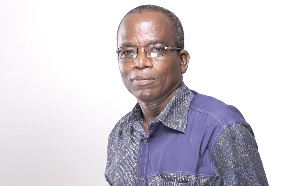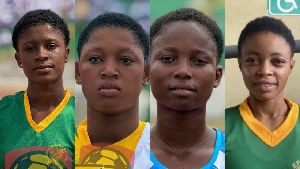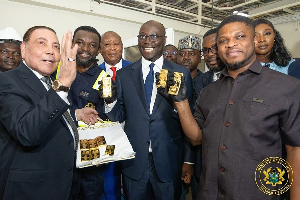The Chairman of the National Media Commission (NMC), Yaw Boadu Ayeboafoh, has said that the media in Ghana cannot be said to be under siege, but rather under attack.
He argues that although there exist some impunity and attacks on media freedom, the media is not besieged, as they are able to fight and ward off such needless and baseless attacks.
According to him, there is the need to distinguish between acts for which the state must be held liable and those for which the deviants must be made to pay through the rule of law.
The Chairman of the NMC was giving a lecture as part of the Ghana Journalists Association (GJA) activities marking its 70 years anniversary, an event held yesterday in Accra, under the topic “Is the media under siege?
He cataloged some attacks against media personnel for undergoing their duties, in working conscientiously in their lawfully chosen occupation.
While at it, he described as ‘senseless’ the murder of Ahmed Suale, an investigative journalist and the brutalisation of Latif Iddrisu, among others, but, however, stated that these attacks cannot be justified under any circumstance in a free and democratic society.
On the contrary, he paused to look at the cases separately, instead of lumping them and blaming the state for what he termed as reprehensible acts.
He was of the view, particularly in the case of Latif where the police demanded the identity of the perpetrators, “it was fair to blame the state, because what happens to the victims are the things that Bishop Desmond Tutu describes as victimising the victims twice.”
“In spite of these reprehensible and abominable developments, we cannot conclude with certainty and definitiveness that the media are besieged, and that the present is not conducive to the practice journalism with freedom and independence,” he remarked.
In his thought-provoking speech, Mr Ayeboafoh shared the agony of all journalists who have been victims of an attack or the other.
He lamented the need for the media, and the country as a whole, to be oriented and conscientised to accept the reality of the constitutional guarantee of media freedom and independence.
“The 1992 Constitution of the Republic of Ghana guarantees not only media freedom and independence, but also provides absolute immunity from criminal prosecution of journalists and publishers for their editorial opinions and views, or the content of their publication,” he stated.
Taking consolation in Article 162 (5) of the 1992 Constitution, which gives the media the power to uphold the responsibility and accountability of the government to the people, Yaw Ayeboafoh supported calls for President Akufo-Addo to declare his abhorrence to impunity and attacks on media personnel.
“And affirm his unalloyed support for media freedom and independence with the same vigour that he displayed in the repeal of the criminal libel and seditious laws under our criminal code,” he added.
He equally applauded the Information Ministry’s initiative to develop a manual for the safety of journalists and media in the country. He stated that all identifiable groups, including political parties, must sign and pledge a declaration to abide by the guarantees of media freedom and independence.
Meanwhile, he urged the media to do all it can to ensure that every attack on media freedom was not only exposed, but properly and thoroughly investigated and dealt with, in line with the rule of law.
The President of the GJA, Mr Roland Affail Monney, who gave brief remarks to set the tone for the lecture, stated that the topic for the lecture was pregnant with all shades of criticisms. He was worried that everything in the country, except the air, has been politicised.
The Chairman for the occasion, Mr Kwasi Gyan-Appenteng, former NMC Chairman, expressed happiness at the lecture.
He said that records show people who support press freedom were in the minority, describing it “as food for thought.”
According to him, even though the constitution gives the media some freedom, are people really ready to support the media, looking at the records that those who support the media are in the minority.
General News of Sunday, 6 October 2019
Source: thechronicle.com.gh













